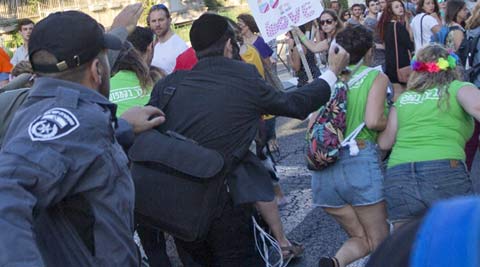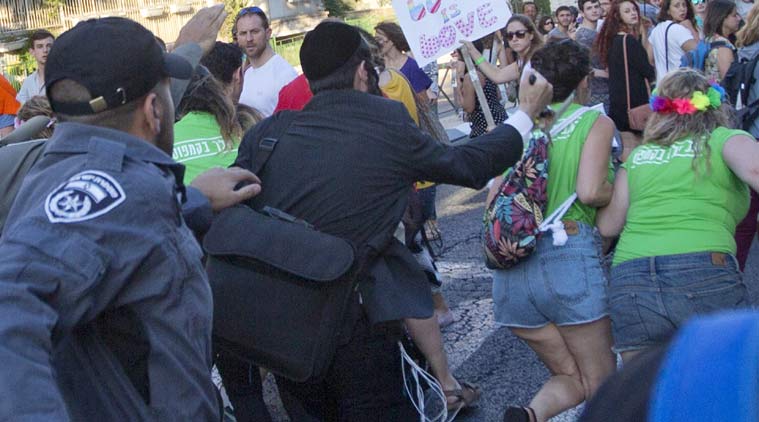Opinion More things change
Attack in Jerusalem is a sobering reminder that in much of the world, including India, it’s not safe to be gay.

 An ultra-Orthodox Jew stabs a woman in the back with a knife during a Gay Pride parade in central Jerusalem. (Source: AP)
An ultra-Orthodox Jew stabs a woman in the back with a knife during a Gay Pride parade in central Jerusalem. (Source: AP)
Amid the lingering euphoria over the legalisation of gay marriage in the US shortly after Ireland did the same by popular vote comes the sobering news of an attack on a gay pride parade in Jerusalem by an ultra-Orthodox Jew. Before he was subdued, the man, a repeat offender, stabbed six people. Such violence is a stark reminder of the hostility encountered by LGBT individuals even in countries like Israel, which is one of the most progressive in the region in its treatment of gay people, and indeed in Asia. Despite the strides in winning legal protections and rights, “out” LGBTs often become social pariahs, marginalised and excluded from opportunities. In certain instances, the very act of coming out and claiming public space is seen by some as a provocation, an attack on a “traditional” way of life.
[related-post]
While the past two decades have seen a dramatic change in attitudes in much of the West, as well as in Latin America and even China, several countries have gone backwards, embracing more stringent laws against homosexuality or simply undoing earlier advances, as in India. Discrimination has worsened, for instance, in Russia, which passed a raft of anti-LGBT laws, including legislation that punished people engaged in “LGBT propaganda” and empowered officials to fine and detain gay or “pro-gay” foreign nationals. In 2014, Nigeria and Uganda, where homosexuality is already illegal, passed the most draconian anti-gay laws in the world. Though Uganda’s law was annulled by a court, Nigeria’s legislation — in which gay marriage is punishable with up to 14 years in jail and organising or belonging to a gay group attracts 10 years of prison, and which criminalises failure to report a gay person to the police — has reportedly encouraged mob attacks, police torture, evictions and public whippings.
Unfortunately, victories in some parts are provoking a backlash elsewhere. When US President Barack Obama offered full-throated support for gay rights in Kenya, where gay sex is illegal, he was dismissed by his Kenyan counterpart, who claimed it was a “non-issue”. And reports suggest that even young Kenyans and Ethiopians found Obama’s views unpalatable. The gay divide is wide. It may be getting wider.


